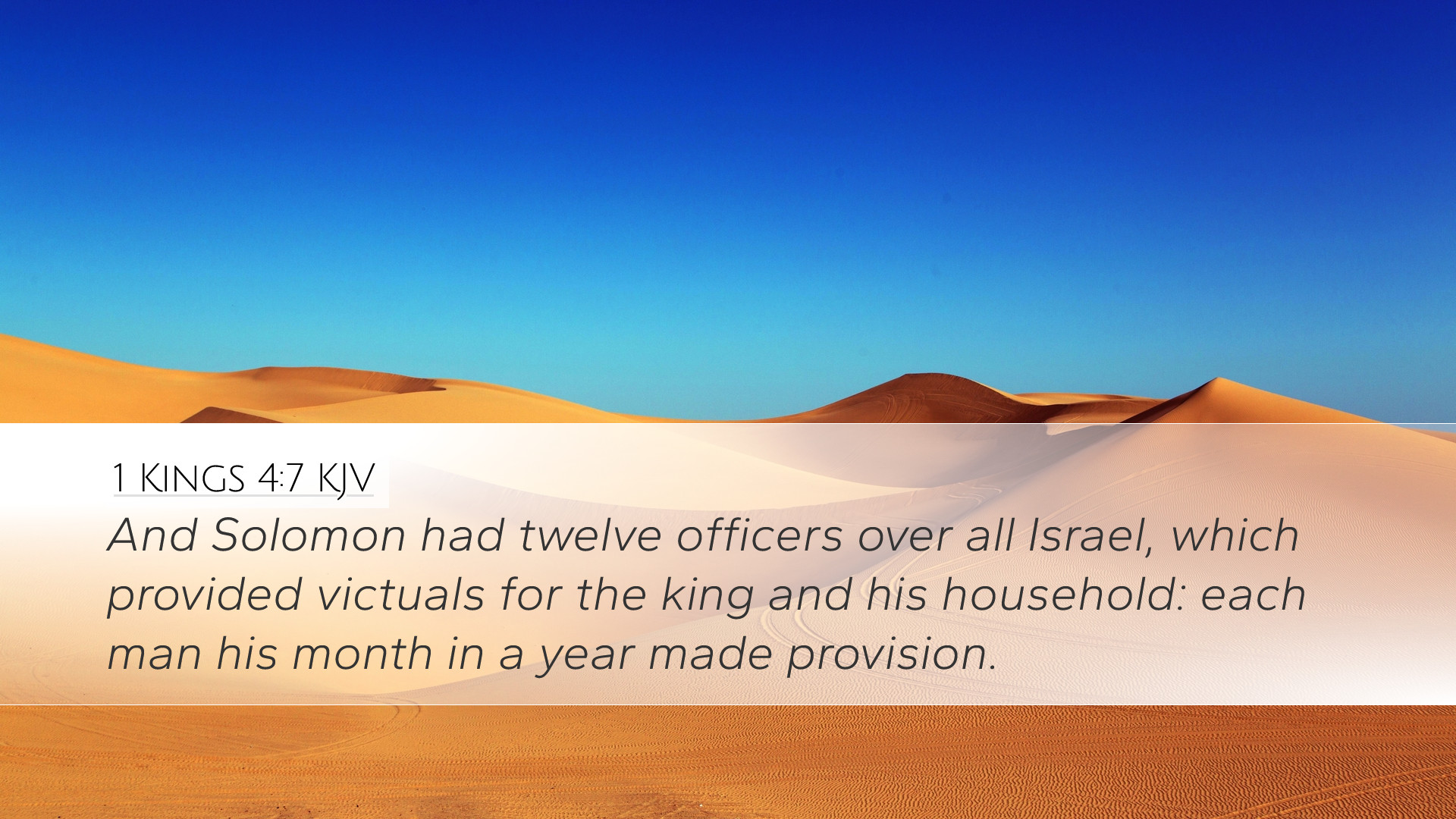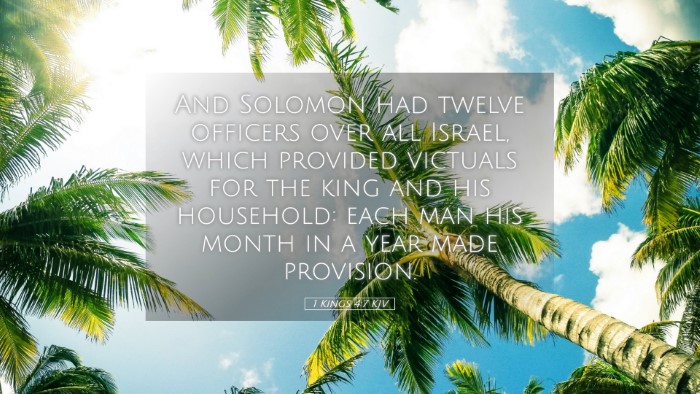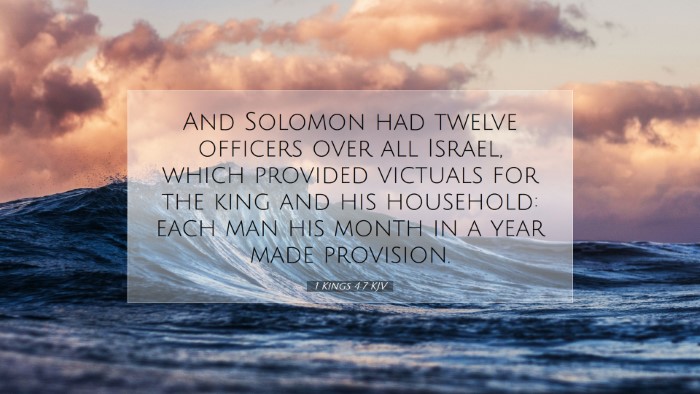Commentary on 1 Kings 4:7
In 1 Kings 4:7, we encounter a significant moment in the historical and political narrative of the Israelite monarchy under King Solomon. This verse reads, "And Solomon had twelve governors over all Israel, which provided victuals for the king and his household: each man his month in a year made provision." This passage not only outlines the administrative structure established by Solomon but also emphasizes the wisdom and foresight instrumental in his governance. Below we present a synthesis of insights from notable public domain commentaries.
Administrative Wisdom Demonstrated
The presence of twelve governors signifies a form of decentralization in governance, which allowed Solomon to effectively manage the vast resources and population of Israel. According to Matthew Henry, Solomon’s decision to appoint governors was wise as it ensured that the needs of the king and the court were met regularly and efficiently. Each governor's monthly rotation indicates a system of accountability as well as fairness in the distribution of duties.
-
Resource Management: Albert Barnes notes that this system was crucial for managing the agricultural bounty and the diverse needs of Solomon's household. The governors were responsible for gathering and delivering provisions, showcasing a practical approach to sustain the royal family consistently throughout the year.
-
Judicial and Administrative Roles: Adam Clarke explains that these governors not only managed resources but likely also provided local governance and judiciary functions in their regions, which speaks to the multilayered responsibilities assigned within Solomon's administration.
Theological Implications
From a theological perspective, Solomon's organization of his kingdom underlies the biblical theme of wisdom in leadership. Matthew Henry reflects on this by emphasizing that government, when righteous and prudent, becomes a means through which God provides for His people. Solomon, known for his wisdom, uniquely equipped himself to fulfill his role as a king. This verse prompts readers to consider the importance of governance and stewardship in contemporary ministry and societal leadership.
Contextual Analysis
Situated within the context of 1 Kings 4, this verse is part of a broader narrative describing the prosperity and peace experienced during Solomon’s reign. The administration of food and resources reflects not only the peace in the kingdom but also the wisdom entrusted to Solomon by God himself as a response to his request for understanding rather than riches.
-
Divine Wisdom: Echoing Barnes’s observations, the effectiveness of Solomon's governance can be seen as an expression of divine wisdom at work, which was a hallmark of his kingship.
-
Covenantal Responsibilities: Clarke notes that Solomon's arrangement of governors also reflects Israel's covenantal responsibilities to God. As they flourished, it was incumbent upon them to do so in accordance with God's laws and principles.
Practical Applications for Contemporary Readers
For pastors, students, and theologians, this verse encapsulates valuable lessons in leadership, stewardship, and community service. It reinforces the necessity of structuring authority in a way that fosters accountability and ensures the faithful provision of resources.
-
Leadership Structure: Modern church leaders can learn from Solomon by establishing clear roles and responsibilities within their ministries, ensuring that all members are supported and nurtured in their respective functions.
-
Community Provision: The concept of governance with a focus on provision speaks to the church's role in community outreach and care, emphasizing the importance of providing for those in need as part of the body of Christ.
Conclusion
In conclusion, 1 Kings 4:7 serves as a powerful reminder of the importance of wise governance and resource management. Solomon’s appointment of twelve governors exemplifies an effective structure for leadership that emphasizes care for the community and sustainment of authority. Through the lens of historical context and theological reflection, we are called to integrate these principles of wisdom and provision into our lives as leaders and ministers, ensuring our practices reflect the character of God in our stewardship of His resources and people.


